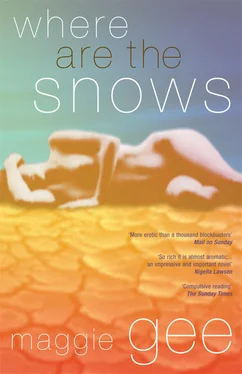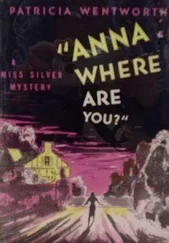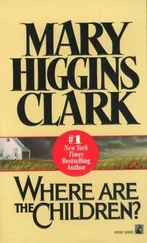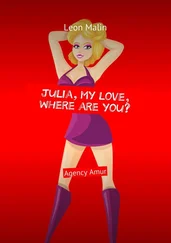I wonder why it made me sad; I wonder why tears sprang to my eyes; I wonder why I felt left out, as if I had missed out on life’s great secret, as if it was me who had been out in the cold and not these millions of faceless people…
But the sadness was the merest moment. We were all together. It was beautiful. As the boat took us across the light-tipped water the night was all round, a black satin night, a night that couldn’t frighten me; it felt cool, for once, and clear for stars, a night which would magnify and not dampen, a night which could hide the rubbish barges and the piles of junk, the addicts, the derelicts, a night which would be our theatre.
‘Did you see the children?’ Christopher asked.
‘No. Isn’t it rather late for children?’
‘There were some schools with banners. Hundreds of children. Waiting for the fireworks — you didn’t hear them singing?’
‘There was so much noise — I’m sorry I missed that. You should have pointed them out, darling.’
Looking back across the strait I did glimpse a banner, a brave red splash dipping and swooping above the crowd, but the faces were too small, we were too far away, the pity was that I couldn’t see the children, but I smiled in their direction as the boat bumped the jetty, and a few minutes later as we stroked out hair and patted our clothes before entering the Statue we both turned for a second and looked back at the waving, shimmering mass of humanity stretched out along the waterfront, waiting for fireworks and comets and marvels and blessings upon the rest of their life, waiting for the street party of a lifetime, and I think we both felt reluctant to leave them; but we had already made our decision, Christopher had paid an exorbitant price, we’d bought our tickets, now we had to use them. We kissed and went in out of the night.
But we left the best of it all outside. Inside all was planned, and therefore banal. Remember that Christopher and I had had two decades of eating in the best restaurants all over the world. We were very hard to please, or surprise. Now we were faced with festive food, spectacular but tasting of dust.
The centrepiece was an enormous cake in the shape of the earth, carefully iced with seas and continents, prettily coloured, suspended on a plinth with considerable art; it hadn’t crumbled yet, though the first guests inside the Statue must have flung themselves upon it with great fervour for a lot of the cake had already been eaten, much of the polar regions gone, Europe nibbled, the green patched with brown where the icing had been stolen; around it were similar but smaller set-pieces, a mountain of caviare shaped like a whale, terrines and pâtés in the form of a rhino, a kangaroo, an elephant… star-shaped dishes, moon-shaped dishes, dishes based on every national flag with stripes of radish and tomato and salsify that rapidly became indecipherable as spoons plunged in and broke them up; there were rather appealing marzipan mock-ups of famous buildings from all over the world, from the Leaning Tower of Pisa to the Sydney Opera House, all looking less clichéd in sepia miniature, there were meat-loaves like primitive space rockets, a shortcrust steam-train pulling carriages of cheese, jellies and mousses like passion-flowers or peonies, wonderfully life-like but smelling of soap, an icecream model of the Palace of Versailles which began to melt as the mob pressed round, and many other fantasies I must have forgotten, for even at the time my head was spinning…
Everything was there that anyone might want but all of it was in fancy dress — and so were we, so who were we to complain?
On a long side-table there was a display of glazed bread baked into the form of Twentieth Century Immortals; I know that’s what they were because the legend told me so, but they were an ill-assorted and misshapen crew, who ranged from Charlie Chaplin and Albert Einstein to Michelle Pfeiffer and Samuel Beckett (that posturing Frenchman one of the Immortals! At college he had made my first year modern languages course a misery, he was a misery, endlessly banging on about poverty and despair), Michael Jackson, Lucille Dupont, Mikhail Gorbachev, Margaret Thatcher — Margaret Thatcher! — I have never had the slightest interest in politics, but everything about her offended me — her joylessness, her sexlessness. She was the Britain we had left behind. Her long mean nose had been overglazed and bore a tiny accidental dewdrop of dough. I cut myself a slice of Margaret Thatcher and a larger piece of Samuel Beckett, but they sat like cardboard on the tongue, they were probably immortal because they were inedible!
Chris said, ‘We’re pathetic creatures, aren’t we?’ and for once I could agree with him. This peculiar feast was someone’s idea of what mattered about life on earth, what was worth admiring and celebrating, but the symbols seemed random and disproportionate, a star and a rocket, the moon and a steam-train, everything now being broken up and swallowed in a giant orgy of consumption.
We were still in a good mood with each other; it was only an armistice, but it felt like peace. We laughed at the food and drank a lot of champagne. All over the world we knew that bottles of champagne were being turned into alcohol in the bloodstream, into gaiety and hope and excitable behaviour and not until much later, but inevitably, quarrels, headaches, hangovers, and who wouldn’t take the former and never mind the latter?… we always had; we did, we did, we took our pleasures and the consequences –
(Except that I wonder. Now. Alone. In the heart of the sweaty Brazilian night. I wonder where all the pleasures have gone. All I can feel are consequences… what have I done, what have I done?)
We wandered about, arm in arm, smiling with delight at the few young faces there, few because few of the young could afford it, and smiling in a different way at the overdecked, overlifted old, not wishing them ill, just glad we were different. We still weren’t old. I wasn’t old. My hair and my dress were flaming red, when I danced my body felt like a young girl’s, and I danced that night for hours and hours, enjoying the way men looked at me, for I still had power, I could still make them want me…
(Only five years ago. How slowly time begins to speed up.)
Chris grew tired of dancing. Chris grew tired. He was fifteen years older than me, remember. ‘Let’s find a good seat to see the fireworks.’
A stupendous firework display was promised for midnight; everyone in New York would be watching. The champagne — too much, for they were pouring it like water — made me more wilful than usual. ‘I’m not ready to sit down yet. You go, darling.’
‘But we have to see in the New Year together —’
‘Of course I’ll come, but not yet, don’t fuss…’
In fact, I didn’t know the precise time, because the watch that matched the flame-red dress had been snatched from my wrist on the wide sunlit sidewalk of Kalakaua Avenue, Hawaii, and I’d never found another precisely right, but I intended to dance into the twenty-first century, I was too young to sit down yet.
— And so it happened that I missed the moment and we didn’t celebrate it side by side; I was spinning round the suddenly surprisingly vacant dance-floor, admiring myself in the enormous mirrors brought into the Statue for the occasion, a scarlet woman, spinning like a leaf, when I suddenly heard shooting; a tremendous fusilade of guns; the figure in the mirror stopped dead in her tracks; the orchestra, which I later realised had gone on playing just for me, lurched to a ragged halt; after a millisecond’s pause they struck up Auld Lang Syne, and I knew that the firing had been for midnight as the sky outside the high strips of window burst into a tracery of brilliant colours, everyone was chering, I was alone.
Читать дальше












